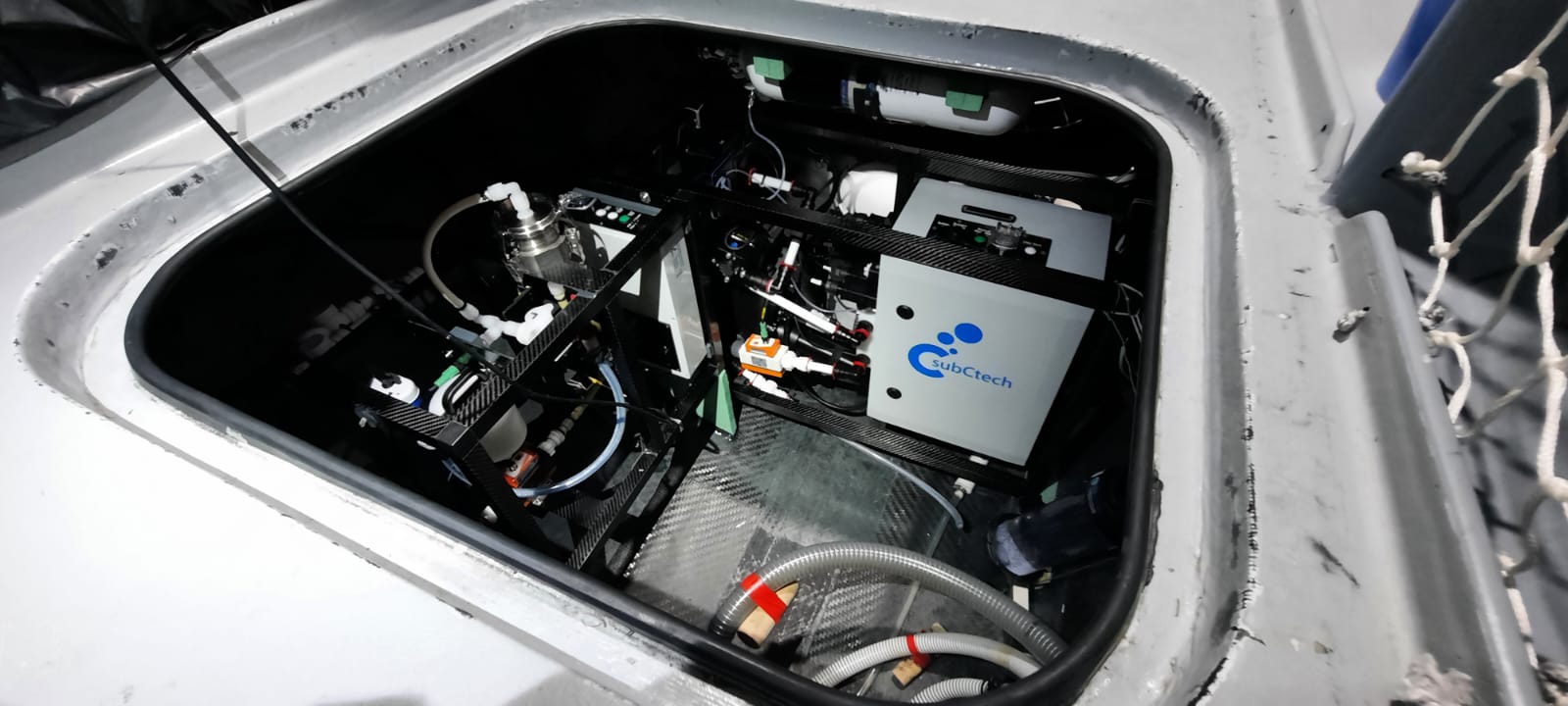Sails of Change: bearing the message for ocean protection around the world
Our lives depend on a healthy planet, which in turn depends on a healthy ocean. The ocean provides half the oxygen we breathe, the food we eat, the water we drink, as well as regulating the climate: the seasons, the weather, the average temperature, rainfall, wind and amount of sunshine.
But how do we know whether the ocean is healthy? Particularly in remote areas such as the Southern Ocean and Antarctica, accurate scientific data is hard to come by, making it difficult to assess the impact of climate change and human activity on biodiversity.
Conscious of the need for better data, and of sport’s responsibility towards the environment, Dona Bertarelli and Yann Guichard set out to ensure that Sails of Change’s round-the-world voyage would contribute to our scientific understanding of ocean health. The maxi-trimaran has therefore been equipped with onboard sensors which will capture precious environmental and climate data:
- Sea surface temperature. Rising temperatures can dramatically alter ocean ecosystems, forcing marine life to migrate, damaging corals, and hurting fish populations, affecting coastal communities and those who depend on fish for jobs or food.
- Salinity. Measuring salt levels lets scientists track the exchange of fresh water between the ocean and the atmosphere (the cycle of evaporation and precipitation), and reveals how climate change is impacting weather patterns and ocean currents.
- Chlorophyll. This vital pigment allows plants to transform carbon dioxide into oxygen. Measuring chlorophyll provides insight into quantities of phytoplankton, a key component of ocean ecosystems, as well as oxygen levels.
- Carbon dioxide. The ocean plays a vital role in planetary health by absorbing 30% of greenhouse gas emissions. When CO2 dissolves in the ocean, however, the water becomes more acidic, negatively impacting biodiversity.
Sails of Change will also sample the concentration of microplastics on the water surface. These tiny particles represent a growing threat to the environment and ocean health. Measuring microplastic levels provides insight into the nature and extent of man-made pollution.
In addition to the above, the maxi-trimaran’s onboard weather station will record data on air temperature, humidity, atmospheric pressure, wind strength and direction, and sea swell. Ocean observations and data are required for better weather forecasts and warnings. Without a weather forecast the ship doesn’t even leave the harbor.

During the voyage, the scientific data collected will be openly available on the Sails of Change website.
Sails of Change will work with a scientific consortium to analyze and make full use of the data collected. All data gathered through the ship will be shared according to international standards and openly available, thanks to Ifremer worldwide ocean data leadership.
Sails of Change is working in collaboration with the best scientific partners in the field: Ifremer, WMO (World Meteorological Organisation), Oeanovox and Kineis. The WMO is coordinating the met-ocean observation contributions through its field office OceanOPS (jointly run / operated by WMO with UNESCO’s Intergovernmental Oceanographic Commission) involved to provide technical coordination, including guidance on instrumentation and monitoring of data flow to international data archives. Sails of Change is part of UN Decade of Ocean Science. In this way, a sporting adventure can also contribute to our understanding of ocean health, and the impact of climate change and human activity on ecosystems.